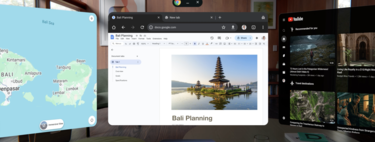OpenAI recently took the lead by introducing a $200 monthly subscription for ChatGPT Pro. In response, Google has raised the stakes with its Ultra plan, priced at $250. This subscription not only monetizes advanced capabilities but also establishes a hierarchy. If users want access to the most powerful AI tools, they need to pay for them.
Gemini has evolved beyond mere conversation. With that premium price, you gain access to a suite of cutting-edge features that represent the forefront of technology:
- Deep Think, the new Gemini 2.5 Pro reasoning mode
- Priority access to video and audio generation tools (Veo 3, Image 4)
- Project Mariner: agents that understand, plan, act, and execute
- Flow, a cinematic creation tool offering camera control and 1080p video generation
- Whisk Animate, a tool that converts images into 8-second animated videos
- Notebook LLM, featuring higher limits and advanced model versions
- Gemini in Chrome, with contextual page understanding and early access
- Gemini integrated into Gmail, Docs, Chrome, and Search, providing persistent context and priority usage
- 30 TB of storage across Drive, Photos, and Gmail
- A subscription to YouTube Premium

The most significant aspect of the Ultra plan isn’t what it includes, but rather what it leaves out. Google has placed everything that characterizes this new era of AI (agency, autonomy, deep reasoning, and extended multimodality) behind a paywall. This move signifies more than just a business model. It reflects a vision. Intelligence becomes both a product and a frontier.
Additionally, a 50% discount is currently available for the first three months, and the previous plan is now referred to as Google AI Pro.
Flash is the free (or low-cost) version designed for the general public. It’s fast, competent, and useful. It serves as an AI model without memory, tools, and functionality. Its purpose is to respond rather than to take action. Flash doesn’t create workflows, automate processes, or think beyond a brief moment. It embodies the promise of democratization that remains intact, while Ultra assumes the role of the true leader.
Google’s strategy doesn’t come as a surprise, but it does reinforce a key message. The era of mass access and open experimentation is now behind us. We’re now entering an economy based on computational performance. Anyone seeking more context, persistence, or power will be required to pay for it soon. 2022 was the year of dazzling advancements, and 2024 will be known for the rise of copilots. Meanwhile, the emergence of digital classes will characterize 2025.
This time, the dividing line won’t be technological but economic.
What Google is doing isn’t merely a commercial move. It’s structural. It institutionalizes restricted access to information. While knowledge has traditionally become more accessible through platforms such as Wikipedia, Google, YouTube, and MOOCs, it’s now beginning to retreat into high-end products.
As a result, productivity, creativity, and the ability to compete are also diminishing. The digital elevator continues to ascend, but the cost of riding it increases significantly.
You’re not just paying for technology. You’re paying for an unseen yet crucial advantage: the ability to think with more assistance, in more directions, and with less friction. You gain the right to automate processes before others can. You have access to an assistant who knows how to program, understands video, remembers details, and takes action. As always, intelligence–whether human or artificial–tends to concentrate where capital accumulates.
What about the rest? The average user is left on the other side, with an AI model that responds but doesn’t make decisions. This AI system assists but doesn’t anticipate. It summarizes but doesn’t create. This gap isn’t between those who use AI and those who don’t, but between those who leverage it to their advantage and those who only observe it from a distance.
Google has confirmed what OpenAI had already suggested: Access to automated knowledge will be priced, restricted, and proprietary.
If the future consists of intelligent interfaces, reasoning engines, and agents that perform tasks for us, then that future will cost $250 a month.
Images | Solen Feyissa | Google
Related | Desperate to Compete With ChatGPT, Google Has a Plan to Get Gemini Everywhere: Money



